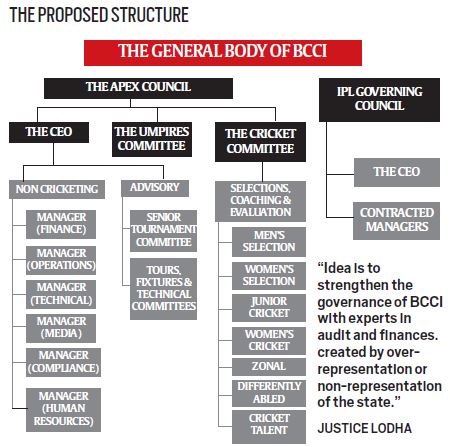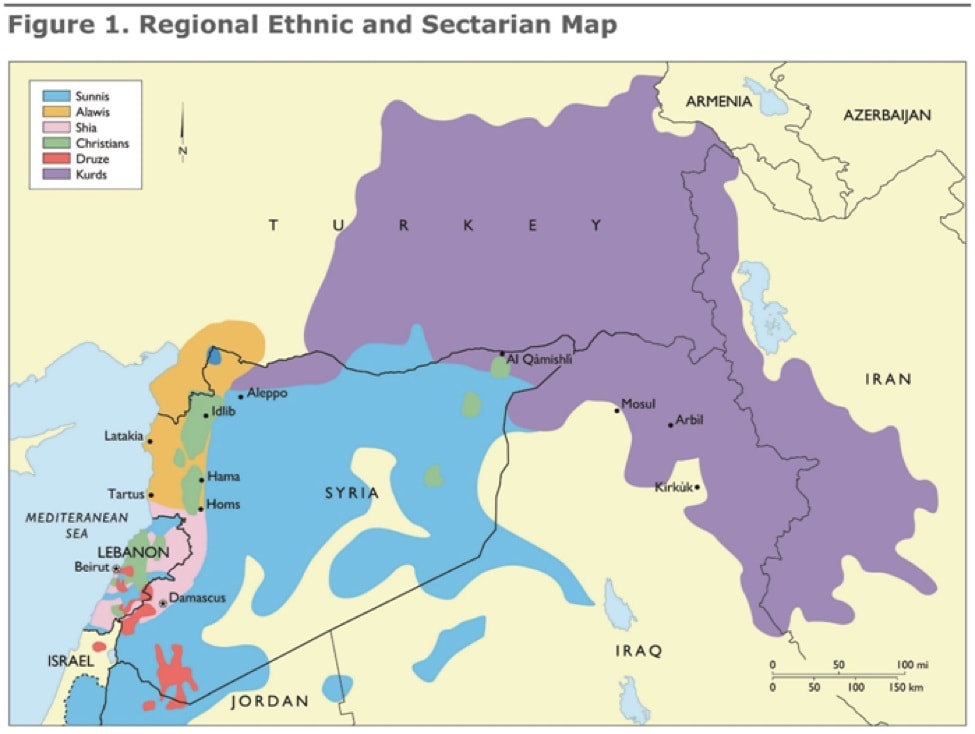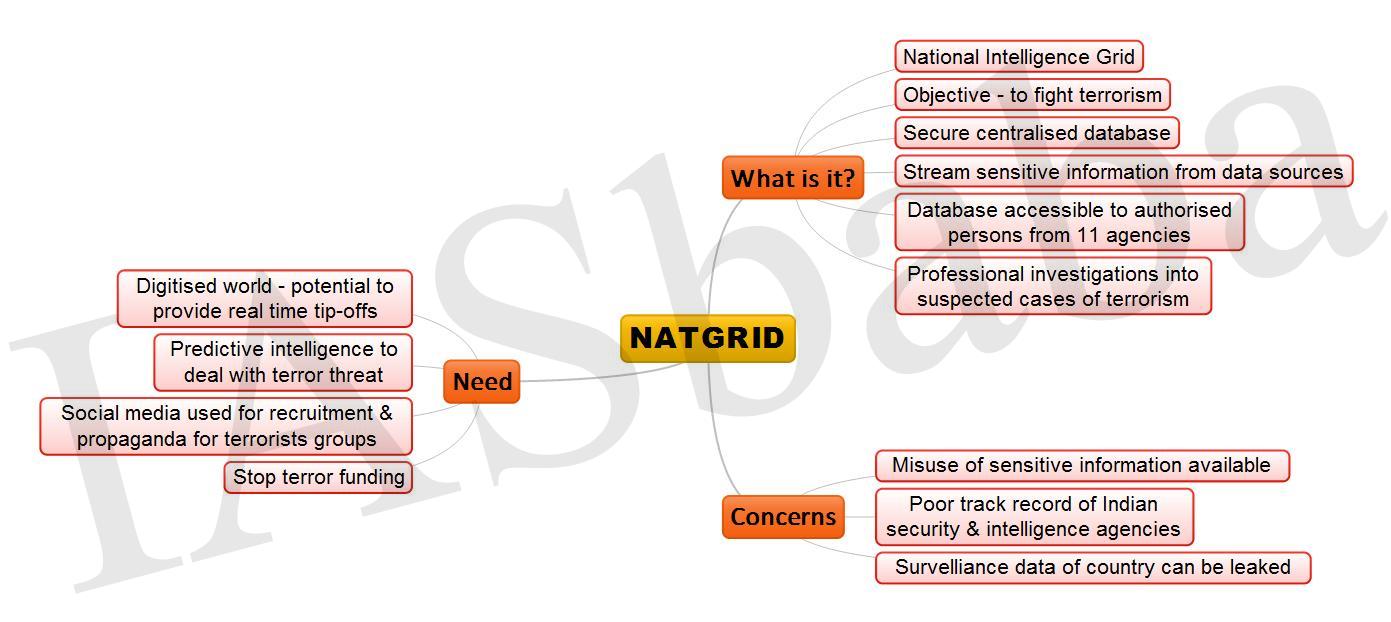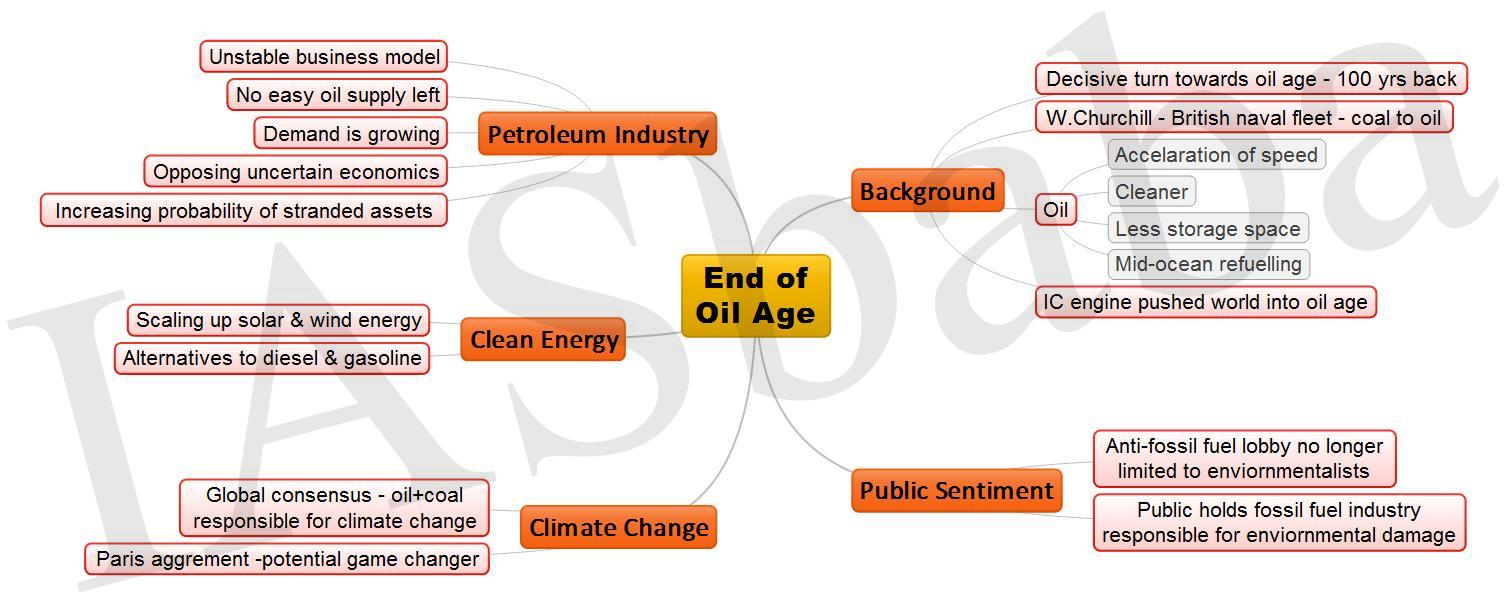IASbaba's Daily Current Affairs Analysis, IASbaba's Daily Current Affairs January 2016, International, National, UPSC
Archives
IASbaba’s Daily Current Affairs – 5th January, 2016
NATIONAL
TOPIC: General studies 2
- Government policies and interventions for development in various sectors and issues arising out of their design and implementation.
Lodha panel lays out a new pitch for BCCI
- The Supreme Court appointed Justice R M Lodha-led committee has suggested a paradigm shift in the functioning of the Board of Control for Cricket in India (BCCI), with a slew of changes that would dismantle the existing ecosystem of the Indian cricket board.
- The proposals include separate governing bodies for the Board of Control for Cricket in India (BCCI) and the Indian Premier League (IPL), in a bid to partially segregate their functioning, limiting age and tenures for officials, legalising betting, uniformity in structure of state associations, and a one-state, one-member (vote) pattern for the BCCI governing body.
Why was the committee appointed?
- The committee was appointed by Supreme court at the backdrop of IPL spot fixing issue in 2014 as a result of which few IPL players and two IPL teams have been debarred from contesting in this year’s IPL tournament.
- In order to restructure BCCI and to streamline it towards cleansing cricket atmosphere in India, the committee took its form.
Key recommendations of the panel:
- Proposes a new governing structure for BCCI
- The panel suggested limiting the autonomy of IPL, adding that its governing council should be reduced to nine members with the secretary and the treasurer of BCCI as ex-officio members and two other members to be nominated or elected by the full members.
- Of the remaining five, two would be the nominees of franchises, one would be a representative of the players’ association (that is to be formed) and one would a nominee of the Comptroller and Auditor General of India.

- One Zone – One Member – One Vote:
- This will clean out the undemocratic irregularities that have been used to manipulate voting patterns and election process within the BCCI.
- As things stand today the BCCI has 30 full members, some of which don’t field teams, while others represent any territory.
- Only 20 states and one union territory, Delhi, are included and ten states and six union territories are excluded.
- However, Maharashtra and Gujarat have three full members, with voting rights.
- The committee has proposed that states will be restricted to just one member, though they can continue to field different teams as in the past.
For example, BCCI can nominate one association from Maharashtra (Mumbai, Vidarbha and Maharashtra are its three different associations, currently) and Gujarat (Baroda, Gujarat and Saurashtra).
- The inclusive approach to spreading cricket across India
- Bihar, one of the most populous states, doesn’t have a Ranji team.
- To spread cricket to the far reaching corners of the country in a more inclusive and democratic manner, the committee has sought to re-address the constitution of the board.
- More states and union territories will get representation.
- For example, Bihar, which is not affiliated to the board, will be included and get a Ranji team, and the right to vote.
- Currently, only Delhi is a full member from the union territories (UT) but the committee has proposed that Puducherry, the only other UT with a chief minister, should be treated as Associate member and be allowed to field a domestic team.
- No geographical base, No Votes
- Services, Railways and All India Universities — three national service groups – have been treated as Full Members with voting rights thus far.
- Apart from these, the National Cricket Club at Kolkata also enjoy full membership of the BCCI just like the Cricket Club of India at Mumbai.
- They have no geographical base for representation as they don’t represent any territories and their relatively small statures have allowed them to be used as pawns in the voting game.
- They have been the disembodied voices that have been easily bought. No more, though. The panel has recommended that Services, Railways can continue to field Ranji teams but cannot be deemed as Full Members and cannot have voting rights.
- Say no to Affiliates and Future Members
- The BCCI has four categories: Full Member, Associate Member, Affiliates, and Future Member.
- The titled Future Member consists of Uttarakhand, Mizoram, Telangana, Chandigarh, Puducherry and Andaman & Nicobar and have been given, to quote the report, “an illusion that it will be promoted at some vague point in the future”.
- The committee have been recommended that categories of Affiliates and Future Member be removed, and re-juggling of the Full Member and Associate Member lists be done. And that only the Full Member will get a vote.
- Restrictions on the BCCI office-bearers
- They should not be aged more than 70, should not be ministers or government servants, and cannot hold office for more than three terms, with a “cooling-off” period between terms.
- Regardless of post — president, secretary, joint secretary, vice-president and treasurer — no official can hold on to any seat for more than nine years in all.
- Each term will be reduced to three years and every elected apex council member will have to undergo a cooling-off period of three years after each term.
- They also cannot be ministers or hold government positions, and will also have to divorce themselves from the state association that they represent.
- Legalising betting
- Lodha panel has recommended legislature for legalising betting and an “in-built mechanism” to ensure that players and administrators don’t bet on matches.
According to experts, cricket satta (illegal betting) in India could be as much as Rs 3 lakh crore a year.
- On an average, daily turnover of Rs 100 crore is seen by cricket satta in Mumbai alone.
- Rest of the country sees average daily turnover of Rs 900 crore.
- Cricket matches are played for 300 days in a year across the world.
- “To ensure they don’t involve in betting, they have to disclose their assets to the BCCI. It can only be done through betting houses which will have to take licences. Any misconduct by them will result in cancellation of those licences,” says the report.
If betting is legalised, Ladbrokes, a British company through which people across the world place bets on EPL matches, Ashes and Fifa World Cup, could enter India.
What did BBCI say?
- The BCCI has said that these are just recommendations, and it would now form its own committee to look into the proposals before deciding on a future course of action.
- Former president N Srinivasan and some other senior administrators also questioned the feasibility of the proposals.
Way ahead:
- The committee recommendations is a good move towards revamping the corruption struck cricket body in India.
What next?
Supreme Court should make the report binding on BCCI and try to implement it or BCCI should appoint an internal committee to look into the feasibility of implementing the recommendations of the committee.
Connecting the dots:
- Off late commercialisation of sports is making news in India. Analyse the pros and cons of it. Clearly indicate your opinion wrt commercialisation of sports in India.
- Critically examine the recommendations of Lodha panel report on BCCI restructuring with special reference to legalising cricket betting in India.
INTERNATIONAL
TOPIC: General studies 2
- Effect of policies and politics of developed and developing countries on India’s interests.
Turkey’s war on the Kurds
There has been a spate of differences between the Turkish President, Recep Tayyip Erdogan, and Selahattin Demirtas
Kurds in Turkey
- Bonded by ethnicity, the Kurds are a sizeable minority within Turkey, as well as within the neighbouring states of Syria, Iraq and Iran (14.5 million Kurds in Turkey)
- Turkey accounts for 50 per cent of Kurds in the region, with Iran and Iraq accounting for six million each and Syria for two million
- Leader of the left-wing People’s Democratic Party (HDP) is Mr. Demirtas and leads a party that unites the Kurdish nationalist forces and Turkey’s left-wing groups
- Under his leadership more rights for the Kurdish population within Turkey has been achieved without any demand for the creation of a Kurdish state out of Turkey
- Istanbul has the largest concentration (one million Kurds). Also, the majority of the Kurdish population lives in the country’s south-east, which has been the epicentre of demands for self-determination

‘Treason’—
- A resolution was passed by the Kurdish Democratic Society Congress (DTK), which reiterated an old demand for the creation of Kurdish “autonomous regions” and “self-governance bodies and thus, this action was termed as ‘treason’ by Mr.Erdogan
- Turkey is worried that an independent or autonomous Kurdistan in Syria will embolden the Kurds in Turkey and that eventually an autonomous or independent Kurdistan would be formed within its territory as well
Violent War against Kurds
Various instances of the region resembling a war zone or a fight against separatist terror organisations:
- Policies of military curfews and severe crackdowns on the Kurdish towns and cities of south-eastern Turkey
- Turkish tanks shelling Cizre, near the Syrian border; Hit PKK and YPG combatants inside Syria
- Military operations in Diyarbakir and Silopi escalate each day
- Tanks and heavy weaponry used in conventional warfare are being used by the Turkish armed forces where civilians live
- Assassinations and arrests of pro-HDP politicians and journalists
- Human rights attorney Tahir Elci was killed, and Mr. Demirtas said in a statement, “What killed Tahir was not the state, but statelessness.”
This has led to loss of faith in Turkey’s commitment to its minority and to multi-party democracy leading people like Mr. Demirtas to reconsider autonomy and self-government of the Kurdish areas.
Also, Turkey had been serving as a highway for foreign fighters eager to join the jihad in Syria as well as weapons and funds.
Peace Talks—
Imrali Process
- Since 2013, the Kurdistan Workers’ Party (PKK; main military wing of the Kurdish resistance) has been in talks with the Turkish state for a full peace agreement and this dialogue between the state and the PKK was called the Imrali process
- Imrali: Name of the island where Mr. Ocalan’s prison is based
Dolmabahce Agreement
The negotiations are based on a 10-point Dolmabahce Agreement
But Mr. Erdogan
- Rejected the terms as implausible negotiations between the PKK (terrorist organisation) and the government
- Tied the HDP to the PKK (an “inorganic tie”) wherein the HDP responded that it has no “organic” ties to the PKK; paving way for wars both against PKK and the HDP
War on Mr. Erdogan’s mind—
- Political Frustration: HDP’s political successes have prevented his political ambitions
- Failure of the idea of shifting the Turkish political process from parliamentary to presidential rule
- Cited Hitler’s Germany as an example of a successful presidential system
- Victory of HDP in both the Parliamentary elections prevented his party to achieve an absolute majority to turn his idea into a reality
- PKK’s assistance to the Syrian Kurds had raised the spectre once more of Kurdish statehood or autonomy
Creation of People’s Protection Units
Turkey’s failed policy in Syria:
- Battle-hardened PKK fighters turned to help the Syrian Kurdish fighters in 2011, after the Syrian government of Bashar al-Assad withdrew from Syria’s Kurdish regions in the north and this led to the creation of the People’s Protection Units (YPG)
- YPG and the PKK
- They have been fighters against the Islamic State (IS) since 2012 and the battlefield advances of the Syrian Kurds with the PKK have lifted their morale, gained them international attention, and won them adherents amongst Turkey’s non-Kurdish population.
- Their fighting and their progressive social policy that helped HDP win in the recent elections
- Declaration of Syrian Kurdish autonomy alongside Iraqi Kurdish autonomy (since 1991) put pressure on Turkey’s Kurds to follow suit and this was resented by Mr. Erdogan
YPG has also taken the lead in the fight against IS in Syria; backed by US air strikes, the YPG defended the border town of Kobane against IS last year and has driven the militants from more Syrian border towns
Turkey’s leaning towards IS:
- The border with Syria is porous for entry of IS jihadisand for IS oil and Mr. Erdogan’s son Bilal (director in the BMZ group) has played a major role in the trans-shipment of IS oil to Malta and to Israel
- Turkey’s ambivalence towards IS also irks the U.S:
- S. uses the Turkish base at Incirlik to bomb IS, and watches Turkish craft attack the Kurdish forces who are the main ground troops against the IS
- Reluctance to take a leading role in the US-led campaign against IS
However,
Turkey has proposed an establishment of a ‘safe zone’ about 60 km long and 40 km wide in Syria near the border with Turkey where it could transfer the 1.7 million Syrian refugees in its territory to this zone. The bone of contention lies in the fact that this proposed zone is now controlled mainly by the IS and the YPG. Also, Turkey’s new policy will make it difficult for IS to get new recruits.
US F-16 fighter jets have arrived at Turkey’s southern Incirlik airbase to join the fight against IS and US drones have already launched raids on IS from there
Future of YPG (Yekineyen Parastina Gel)
- If the buffer zone is created, the YPG may withdraw from some areas.
- YPG may be reassured by the “de facto US security guarantee” that it has enjoyed since the bombing of Kobane.
- Turkey may also try to drive a wedge between the YPG and PKK by adopting a softer approach to the Syrian Kurdish group
IASbaba’s Views
- It is still unclear as to how IS or the Syrian government will respond to an uptick in US air strikes or if the rebel groups that are meant to stabilise the buffer zone will play to the rules of the game. A calculative step should be first considered.
- Currently, the Turkish and Kurdish forces are on one side fighting the IS and on the other hand they themselves are fighting with each other, opting for a very hard stance. Thus, there is a need to take care of domestic peace to avoid further complications.
- Turkey’s strategy needs to undergo a major change as these problems are short-sighted and can backfire anytime and therefore, the tactic of destroying the PKK should be kept at bay. Also, it needs to clear its stance towards or against the IS.
Connecting the Dots:
- “We Will Degrade and Ultimately Destroy IS”— Do you think that there exists a stalemate in the war between US and IS? Discuss
- Can life-expectancy of the IS be calculated? What is the reason for Turkey’s change of policy towards the Islamic State (IS)?
- How important is it for the Kurds and the population of Turkey in the light of the recent policy shift of the Turkey towards the IS? Explain
MUST READ
WTO: The many must resist the some – As the developed countries chip away at the egalitarian moorings of the WTO, India must work with like-minded countries to translate its agenda into actual results
For detailed analysis on ‘WTO, Nairobi meet’, refer the below links
Post-Nairobi : WTO- Doha Development Agenda
Message from Nairobi- WTO Negotiations
Dress code by judicial diktat – Judicial Activism ?
India-Pakistan: Time for a national security doctrine
Own your strategy
India must talk to Pakistan — and ensure that cross-border terror is on top of the agenda.
Raja Mandala: Akhand Bharat and other stories- The idea of sub-continental unity has endured. Its definition continues to be problematic
Nobel and Fields wisdom: For Make in India, first need Discover and Invent in India- Make in India programme, will not benefit the country in the long term unless backed by sustained investments in basic science and the fostering of the spirit of curiosity.
India needs to catch up on R&D- China is ahead of us on several parameters like spending on R&D and patent applications filed
The amazing maize- Hybrid varieties have spurred growth in the production and productivity of maize. Improvements in the economics of its cultivation bode well for India
MIND MAPS
1. End of Oil Age
2. NATGRID














